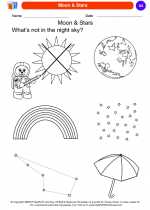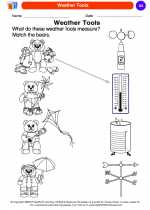Organs
Organs are groups of tissues that work together to perform specific functions in the body. Each organ has a specific role and is made up of different types of tissues, such as muscle tissue, nerve tissue, and connective tissue. Organs are essential for the proper functioning of the body and are part of the organ systems that perform various vital functions.
Examples of Organs
There are many organs in the human body, each with its own unique function. Some examples of organs include:
- Heart: responsible for pumping blood throughout the body
- Lungs: essential for the exchange of oxygen and carbon dioxide during breathing
- Liver: involved in processes such as metabolism, detoxification, and production of bile
- Brain: controls body functions, thoughts, and emotions
- Kidneys: filter waste products from the blood and regulate fluid balance
Importance of Organs
Organs are crucial for maintaining homeostasis, which is the body's ability to maintain a stable internal environment. They work together to perform vital functions such as digestion, respiration, circulation, and excretion. Without properly functioning organs, the body would not be able to survive and carry out essential processes.
Study Guide
Here are some key points to remember when studying the topic of organs:
- Define what an organ is and its role in the body.
- Identify and describe the functions of different organs in the human body.
- Understand the importance of organs in maintaining homeostasis.
- Learn about the organ systems and how organs work together to perform specific functions.
- Explore the impact of lifestyle choices on organ health and function.
Understanding the structure and function of organs is essential for grasping the basics of human biology and physiology. It provides a foundation for learning about organ systems and their interconnections within the body.
[Organs] Related Worksheets and Study Guides:
.◂Science Worksheets and Study Guides Kindergarten. Weather

 Coloring Worksheet
Coloring Worksheet
 Coloring Worksheet
Coloring Worksheet
 Coloring Worksheet
Coloring Worksheet
 Coloring Worksheet
Coloring Worksheet
 Coloring Worksheet
Coloring Worksheet
 Coloring Worksheet
Coloring Worksheet
 Coloring Worksheet
Coloring Worksheet
 Coloring Worksheet
Coloring Worksheet
 Coloring Worksheet
Coloring Worksheet
 Coloring Worksheet
Coloring Worksheet
 Coloring Worksheet
Coloring Worksheet
 Coloring Worksheet
Coloring Worksheet
 Coloring Worksheet
Coloring Worksheet
 Coloring Worksheet
Coloring Worksheet
 Coloring Worksheet
Coloring Worksheet
 Coloring Worksheet
Coloring Worksheet
 Coloring Worksheet
Coloring Worksheet
 Coloring Worksheet
Coloring Worksheet
 Coloring Worksheet
Coloring Worksheet
